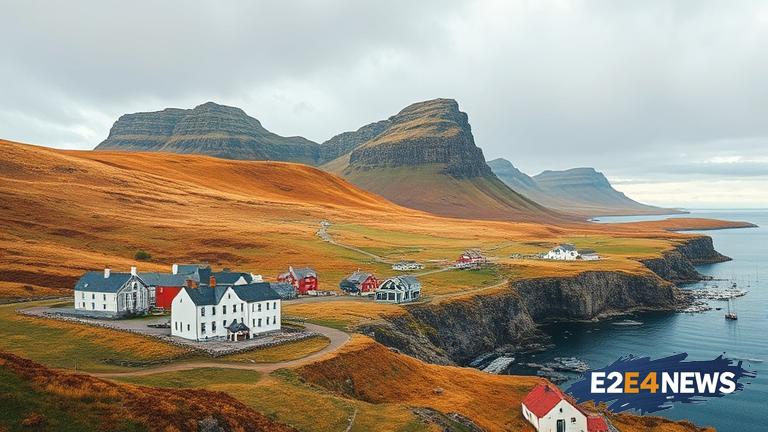The Faroe Islands, located halfway between Iceland and Norway, boast a distinct language and culture that has been shaped by their geographic isolation and rich history. With a population of just over 50,000 people, the Faroese language is spoken by nearly everyone on the islands, and it is an essential part of the country’s identity. However, the language faces significant challenges in the modern era, particularly when it comes to translation. The Faroese language is not widely spoken or understood outside of the islands, making it difficult for the country to engage with the global community. To address this issue, the Faroe Islands have invested heavily in translation services, including the development of language technology and the training of professional translators. One of the key challenges in translating Faroese is the lack of resources and reference materials, making it difficult for translators to find the right words and phrases to convey complex ideas. Additionally, the Faroese language is highly inflected, with a complex system of grammar and syntax that can be difficult to master. Despite these challenges, the Faroe Islands have made significant progress in recent years, with the development of new language technologies and the establishment of a national translation agency. The agency provides translation services to government agencies, businesses, and individuals, helping to promote the use of the Faroese language and preserve the country’s cultural heritage. The Faroe Islands have also been at the forefront of language preservation efforts, with a number of initiatives aimed at promoting the use of Faroese in everyday life. These initiatives include language classes for adults and children, as well as cultural events and festivals that celebrate the country’s unique heritage. Furthermore, the Faroe Islands have been working to develop their own language technology, including machine translation systems and language learning apps. These technologies have the potential to revolutionize the way that the Faroese language is used and understood, both within the country and around the world. The development of language technology is also expected to have a significant impact on the country’s economy, with the potential to create new jobs and opportunities in the fields of translation and language services. In addition to the economic benefits, the preservation of the Faroese language is also essential for the country’s cultural and social identity. The language is a key part of the country’s history and traditions, and its loss would be a significant blow to the country’s sense of self. The Faroe Islands have also been recognized for their efforts to preserve their cultural heritage, with the country being awarded the European Union’s European Language Label in 2019. The award recognizes the country’s commitment to language preservation and promotion, and it is a testament to the hard work and dedication of the Faroese people. In conclusion, the Faroe Islands are a unique and fascinating country with a rich language and culture. The challenges faced by the country in terms of translation and language preservation are significant, but the efforts being made to address these challenges are impressive. With the continued development of language technology and the preservation of the Faroese language, the country is well-placed to thrive in the modern era and maintain its distinct cultural identity. The Faroe Islands are an inspiration to other countries and regions that are working to preserve their linguistic and cultural heritage, and their story is a testament to the power of language and culture to shape our identities and communities. The country’s commitment to language preservation is also reflected in its education system, with Faroese being the primary language of instruction in schools. This approach has helped to ensure that the language is passed down to younger generations, and it has also helped to promote a sense of national identity and pride. Overall, the Faroe Islands are a remarkable example of a country that is working to preserve its linguistic and cultural heritage, and their story is an inspiration to people around the world.
